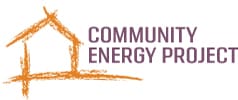The City of Portland has official goals to reduce our carbon footprint and slow down climate change. While many think of transportation when it comes to carbon reduction, buildings are actually the second highest source of carbon emissions in Multnomah county. Inefficient buildings are not only bad for the environment, but the burden of high energy bills and vulnerability to extreme weather lands disproportionately on frontline communities, such as low-income folks, renters, and people of color.
Multi Family Housing has not had the same standards of tenant education or carbon tracking that single family homes and commercial buildings have had. The City, in partnership with Build/Shift (Building Community, Shifting Power) proposes a change to that, bringing more accountability, transparency, and inclusion to renters.
CEP is part of the Build/Shift collaborative that has helped develop the Health, Equitable Energy, Anti-displacement, Resilience, and Temperature (HEART) Standards policy in the city of Portland. The HEART policy prioritizes improving rental apartments to ensure that low-income and BIPOC communities have access to affordable, healthy housing and equitable energy sources so that they can benefit from climate action. The proposed policy is a strong step in continuing the goals of the HEART Standards policy.
Currently, the City of Portland requires those selling a house to have a Home Energy Score. This score shows new potential homeowners information about expected energy costs and existing efficiency measures. The City is proposing a new policy where potential tenants in multi-family housing larger than 20,000 square feet must be notified of expected energy costs so they can take that into account when choosing where to live. Additionally, property owners must report their energy use to the City to track carbon emissions.
Property owners will be required to present this information to prospective tenants at the time of their application, which would include:
- Instructions on how to access energy costs from their utilities
- Information about energy assistance and income-qualified programs to assist low-income renters with utility bills
- The presence of natural gas stoves and the associated health risks of improper ventilation and indoor combustion of natural gas
- Cooling measures available such as central or window air-conditioners, portable heat pumps, ductless heat pumps, etc., and tree shade, cool roofs, etc.
Increasing home energy efficiency and providing better education to renters about energy bills, indoor air quality, and access to efficient cooling and heating can lower utility costs for Portland residents and also it can also help the City reach its ambitious climate goals by reducing carbon emissions.
If you are interested in providing feedback to the proposed policy: Submit your comments HERE by June 14th.
If you are interested in learning about your home’s energy efficiency: Schedule a FREE Home Energy Score with CEP. Free HES are available to income-qualified homeowners in the Portland, Hillsboro, and Milwaukie areas.
Check your own carbon emissions with free online tools: Cool Climate Network’s calculators for Households and Businesses.

